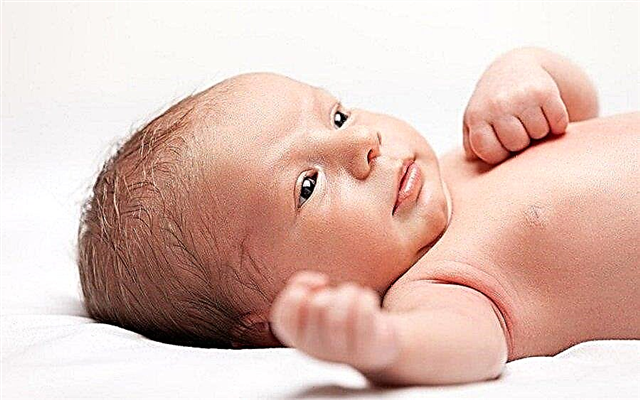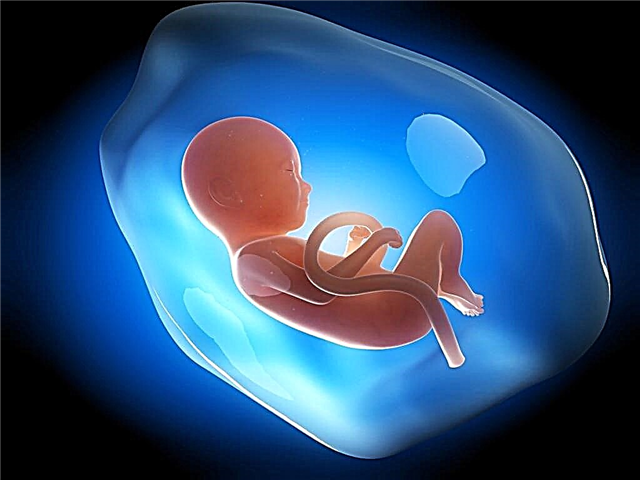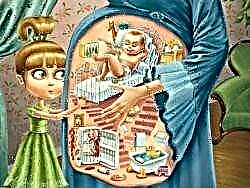It is generally accepted that after feeding the baby should calm down and fall asleep for 2-3 hours. This is not always the case in life. Mothers need to know why the baby does not fall asleep after feeding, when these are character traits, and when a symptom of a problem.

Babies usually fall asleep after feeding
How a night's sleep depends on the day spent
Healthy and adequate sleep is a basic requirement of the body. If the baby does not get enough sleep, then this will affect his development, mental abilities. Children grow up in a dream, a sleeping child is distinguished by good physical development and a strong nervous system.
Lack of sleep is closely related to behavior. If the baby does not sleep well and sleeps little, during the day he behaves restlessly, absent-mindedly and capriciously. Surprisingly, behavior during the day can affect sleep quality. Children who are stressed during the day, cry a lot, fall asleep poorly, and often wake up.
Parents are advised to organize the day so that active games occur during the daytime. In the evening before going to bed, you should not allow watching TV or playing with mobile devices.
On a note! The condition of the parents depends on the quality of the baby's sleep. If the kids do not sleep at night, they fall asleep for a long time, then the parents do not fully rest by the morning. Mom's irritation is transmitted to everyone, a vicious circle turns out.
What to consider when putting your child to bed during the day or at night
Most often, problems with sleep occur in children from 4-5 months. Until that time, it makes no sense to accustom the child to the regime - newborns are constantly waking up from hunger. In order for the baby to sleep its prescribed 3-4 hours before the next feeding, it is important to make sure that he eats well, and that optimal and favorable conditions are organized for him.
In order not to face problems when the baby does not sleep after (posle) feeding, you can follow the recommendations of experts:
- Determine the feeding schedule. They try to organize the intervals between meals so that they are convenient for the mother. Gradually cut back on nighttime meals.
- To make the baby get used to the regime faster, they adhere to the systematic and sequence of actions. After waking up, the child is given time to stay awake, allowed to take air baths, and do gymnastics. At the age of up to 3 months, babies fall asleep immediately after feeding.
- During the day, babies should be physically tired so that they themselves want to sleep. When the baby starts to yawn, he is laid. If you miss this moment, the baby will endure, and it will be difficult for him to fall asleep.
- Sleepwear should be as comfortable as possible, it is advisable to purchase things with seams outward. With discomfort, the child will bend, dodge.
- The sleeping place is organized as safe and comfortable as possible.

Immediately after waking up, the baby is allowed to get acquainted with the outside world and play
Council. It is not recommended to use a stroller for sleeping at home, as children associate it with walking.
Why does a newborn not fall asleep after feeding
Usually, after feeding, the child falls asleep, this is facilitated by sucking movements, during which he gets tired. The melanin in milk is relaxing. If a newborn is awake after feeding, there can be various reasons for this.
Belching at the crumbs
During feeding, the baby may trap air that collects in the stomach. Its presence prevents the baby from falling asleep. After eating, mom needs to hold the little one upright until burping. Then you can calmly put the baby to bed.
Lack of belching after eating can provoke the accumulation of gas, which causes unpleasant conditions: bloating, colic. All this brings pain and inconvenience to the baby, makes it difficult to fall asleep after feeding, the baby begins to be capricious, arch, scream, sometimes push when he cannot poop. Only after the pain and discomfort have disappeared, he falls asleep.

Colic and bloating in the tummy can interfere with sleep
Overexcitement or lack of activity
Gradually, children start sleeping less than playing, this is the norm. After sleeping, the baby should be allowed to stay awake for a while, to look around. The baby must be physically tired before feeding.
Being awake for too long has a negative effect on falling asleep. When overworked, children fall asleep poorly, cry, be capricious. Any stressful or overly emotional situation can also affect sleep. Therefore, 1-1.5 hours before bedtime, active, fun games and entertainment are excluded, including watching cartoons.
Hunger and the need to suck
At first, babies wake up due to hunger. For the same reason, they may refuse to rest. Mothers should be aware that as they grow, their babies' need for breast milk or formula increases. A hungry child will fall asleep for a short time.
In the first months of life, crumbs need protection. This feeling is provided to them by the sucking reflex, thanks to which the children relax and fall asleep. If the baby's mother's breast was not enough, then you can offer him a dummy or let him lie next to him a little.
The discomfort
After feeding, the newborn does not fall asleep for a long time, begins to groan and spin if he is uncomfortable and uncomfortable. The main reasons can be:
- wet or dirty diaper;
- cold or heat indoors;
- too dry air;
- uncomfortable clothes.
By eliminating the factor that interferes with sleep, the problem disappears.
The need for mother's affection
Children constantly need care and attention from the closest person - their mother. If the baby is capricious before going to bed, then you can try to calm him down with your warmth and affection.

Sometimes babies just don't have enough mother's voice to fall asleep.
Council. Mom needs to take the baby in her arms, talk to him gently. This is often enough.
When to Suspect Sleep Disorders
You can understand about sleep disorders (insomnia) by the behavior of the baby and certain symptoms. Children with sleep disorders behave aggressively in the evening, are capricious, they have problems falling asleep.
On a note! If the child systematically comes to the parent's bed, this is an alarming signal. Most likely, he has a sleep disorder.
Insomnia can be suspected by 5 signs:
- the duration of sleep per day is less than 15 hours;
- the baby is in an overexcited state, does not fall asleep well, is often capricious, the state lasts for weeks;
- the infant is awake for more than 4-5 hours without signs of drowsiness;
- before each falling asleep, there is a prolonged crying, which is difficult to calm down;
- after sleep, the child seems tired and exhausted.
Important! It is not worthwhile to diagnose a child on your own. Initially, you need to try to address all possible causes of restless sleep. If the measures taken do not help, then you should seek the advice of your pediatrician.
How to quickly put a baby to bed at night and during the day
For a baby, not only nighttime sleep is important, but also daytime sleep. It is easier to put a one-year-old child to bed if you maintain intervals of 5-6 hours between sleep and exclude active games 1-1.5 hours before bedding.

During feeding, mother and baby should have the correct posture
The rules for laying during the day and in the evening are approximately the same:
- Feed before bedtime, but so that the baby does not fall asleep at this time, since the child must learn to distinguish between the concepts of rest and food.
- It is important to wean the child from motion sickness, to do it gradually. The little ones are taught to follow the sequence of procedures before going to bed, until falling asleep, they stay close and speak in a calm voice.
- At night after feeding, they try not to disturb the baby: you cannot turn on the light, make noise. You need to feed, change the diaper and put him back to bed.
- There is no exact recommendation for when to put your baby to bed. Timing should be tailored to the needs of the parents. It should be the same every day.
- Before going to bed, you can carry out a bathing procedure, which physically exhausts the baby. This does not apply to all children, since some babies, on the contrary, behave more actively after water procedures.
Dr. Komarovsky believes that every mother should take into account the recommendations of doctors and more experienced parents, but one should always rely on the characteristics of a particular child.
Preparing a well-fed child for sleep
Many babies often fall asleep during feeding, even before burping occurs. This is dangerous, as the child may choke when spitting up.
It is important for a mother to follow the feeding rules: the baby's head should be above the level of the body while eating. This will prevent your baby from swallowing excess air. Immediately after eating, the newborn should be held in an upright position for 2-3 minutes before belching.
Council. The best and safest sleeping position is lying on your side, especially for babies who may spit up during sleep.
Whether to wake up a newborn for feeding at night
Newborn babies in the first months themselves wake up at night from a feeling of hunger. This happens every 2-3 hours. If the baby is weak and premature, then the mother should wake him up for feeding, not let him "sleep" food. The full and correct development of the child depends on the timely supply of milk.
If the baby likes to sleep, but at the same time eats well, gains weight and is active, then it is not necessary to wake him up. You can give him an extra hour to sleep, postpone food a little.
On a note! With frequent drowsiness, which does not allow the baby to eat fully, while there is a deterioration in health, the child should be shown to the doctor.

You need to put your interests in first place - if the parents do not get enough sleep, a bad mood will negatively affect the child
Every mother should remember that a healthy full sleep of a child is the guarantee of his health. If the baby does not get enough sleep, he himself will suffer, and all family members will be nervous and angry. If you have problems, you first need to understand why a newborn baby does not sleep after feeding. If, after eliminating possible causes, the situation has not changed, they seek help from a pediatrician.



